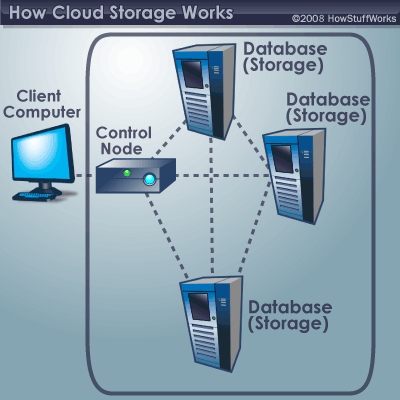Transform Your IT Infrastructure With Universal Cloud Services
In today's quickly advancing digital landscape, the shift in the direction of universal cloud services has come to be a calculated important for companies looking to boost their IT framework. The capacity to streamline procedures, enhance scalability, and boost total performance with cloud movement is obvious. Nonetheless, the real concern hinges on just how these solutions can be customized to resolve the distinct needs and challenges faced by various companies. By exploring the nuanced methods which universal cloud services can be tailored and integrated, organizations can genuinely open their full potential in attaining digital makeover and affordable advantage on the market.
Advantages of Universal Cloud Solutions
Embracing global cloud services uses services a myriad of advantages that enhance operations and improve scalability in today's dynamic electronic landscape. One key advantage is cost-efficiency, as cloud services remove the requirement for ahead of time investments in hardware and infrastructure. This pay-as-you-go design allows companies to scale resources up or down based upon their needs, enhancing spending and minimizing overall IT expenses. Furthermore, cloud services give versatility and availability, enabling workers to accessibility information and applications from anywhere with a web link. This not only enhances collaboration and performance but likewise sustains remote job plans, which have actually become progressively widespread in the modern-day service globe.
In addition, global cloud services offer enhanced protection actions, with data file encryption, routine backups, and built-in calamity recovery mechanisms. This ensures that business-critical details is secured from prospective hazards and violations. Cloud services make it possible for automated updates and upkeep, minimizing the worry on internal IT teams and guaranteeing that systems are constantly up-to-date and running efficiently. Generally, accepting global cloud solutions can cause enhanced efficiency, dexterity, and competition for services in today's digital age.
Migration to Cloud Framework
Migrating to shadow infrastructure deals many advantages, including scalability, cost-efficiency, and increased agility. Cloud services get rid of the need for considerable upfront investments in physical hardware, lowering resources expenditures and enabling organizations to pay only for the sources they use.
One more advantage of migrating to cloud infrastructure is the improved agility it gives. Cloud systems use rapid deployment of applications and solutions, allowing companies to adjust swiftly to market modifications and stay in advance of competitors. Furthermore, the cloud helps with remote accessibility to applications and data, fostering collaboration amongst geographically distributed groups.
Enhancing Information Security Steps
One crucial aspect of enhancing information safety and security is executing multi-factor authentication (MFA) to add an added layer of security past passwords. MFA requires users to supply 2 or more confirmation aspects, such as a password and an unique code sent to their mobile gadget, prior to accessing sensitive information. This substantially lowers the danger of unapproved access, also if passwords are endangered.
Additionally, companies should routinely perform safety audits and vulnerability evaluations to recognize and address possible weak points in their information safety and security framework - linkdaddy universal This Site cloud storage press release. By staying aggressive and continuously improving information security steps, companies can efficiently alleviate threats and safeguard their useful details possessions in a significantly electronic world
Executing Cloud-Based Applications
In adapting to contemporary technical innovations, companies are increasingly leveraging cloud-based applications to optimize their procedures and right here boost efficiency. Cloud-based applications offer a variety of advantages, consisting of scalability, cost-effectiveness, and versatility. By implementing cloud-based applications, companies can streamline processes, enhance cooperation amongst groups, and improve overall productivity.

Moreover, carrying out cloud-based applications can lead to better information monitoring and protection. These applications normally have integrated protection important link functions and use data file encryption to secure sensitive info. This can help companies adhere to information defense guidelines and reduce the threat of data breaches. On the whole, taking on cloud-based applications can revolutionize exactly how businesses run, driving advancement and competitiveness in today's digital landscape.
Taking Full Advantage Of Cost-Efficiency
To attain optimum cost-efficiency in leveraging cloud-based applications, companies have to tactically evaluate their source allotment and application. One key approach for making the most of cost-efficiency is to take on a pay-as-you-go design, where companies only spend for the resources and solutions they use. This flexibility permits for cost savings by getting rid of the need to buy costly facilities that might not be fully used.

Routine surveillance and optimization of cloud resources are vital for recognizing locations where cost-savings can be achieved. By evaluating usage patterns and efficiency metrics, companies can make educated choices concerning source allocation and further streamline their operations to make best use of cost-efficiency in the cloud.
Conclusion
In conclusion, universal cloud services use numerous benefits such as cost-efficiency, flexibility, enhanced protection steps, and automated updates. Moving to shadow infrastructure enables organizations to leverage cost-efficiency, dexterity, and scalability to stay affordable. Executing robust data safety and security measures and cloud-based applications more improve information safety and drive advancement. Maximizing cost-efficiency through pay-as-you-go models, automated resource scaling, and optimization approaches makes certain optimum utilization of cloud resources and total price savings.
Additionally, cloud services offer adaptability and ease of access, enabling staff members to accessibility information and applications from anywhere with an internet link.Furthermore, universal cloud solutions provide better safety and security procedures, with data file encryption, routine back-ups, and built-in calamity healing systems. Cloud platforms supply rapid implementation of solutions and applications, enabling companies to adjust quickly to market adjustments and remain in advance of rivals. Additionally, the cloud helps with remote access to data and applications, fostering cooperation among geographically spread groups.
In verdict, universal cloud services use many advantages such as cost-efficiency, versatility, boosted protection measures, and automated updates.